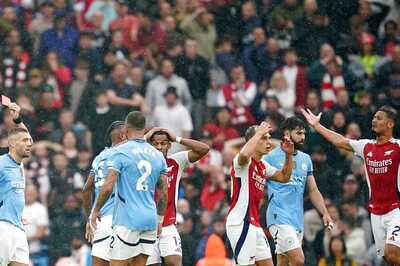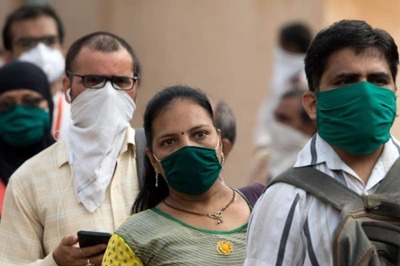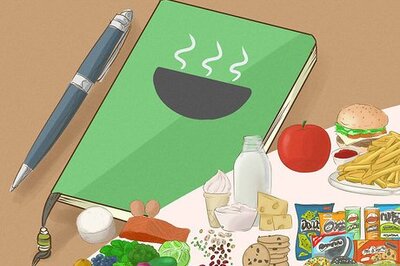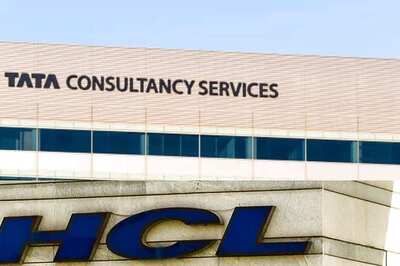
views
This is not the first time that the Hon’ble Supreme Court as the ultimate protector of the Constitution of India has sought to regulate the pollution levels in Delhi-NCR and has taken tough measures for safeguarding life of the people. In the recent past, the court stepped in for the introduction of CNG in the Delhi public transport system. This is a well-meaning and well-intentioned order as have been various orders passed by apex court for closing of polluting industries, fixing sound decibels and use of loudspeakers without which Delhi would have been a terminally ill city by now.
The courts in past have been forced to pass such orders as the executive failed to provide solutions and guarantee to the citizens clean air, water etc, perhaps under the strain of extremely competitive politics and also the reasonable demand of the electorate for employment, better facilities. All these come at a cost and ultimately nature foots the bill of all we use and consume.
Certain facts have to be taken into account while we consider the issue (i) dangerous pollution levels in Delhi due to the construction industry (ii) vehicular pollution (iii) industrial pollution (iv) crop burning (v) other factors which send the pollution levels very high on Diwali vi) use of tobacco, burning of heating oil or coal.
Industrial and vehicular pollution contribute nearly 85% to Delhi pollution but does it not provide us with all facilities and luxuries. Can we live without electricity in today’s world if it’s produced from burning of coal somewhere. Undisputedly the situation is grave and options are limited.
However the order passed on October 9, 2017 is not a final order and only bans sale of crackers for one year to analyse and study its effect on pollution. No final order has been passed as other competing Fundamental Rights are also involved.
Several questions arise out of the order. The first is about it effacing cultural and religious rights and the place of festivals like Holi, Diwali in the lives of citizens? Secondly, whether Supreme Court could have totally, directly or indirectly, sought to prohibit the use of fireworks, or substantial and deep-rooted regulations would have sufficed. For example CNG is compulsory in commercial vehicles is compulsory but not in private vehicles. Thirdly, is Diwali the cardinal trouble spot if not what about the other sources of indoor and outdoor pollution due to which around 1.5 million people in India die annually?
The Supreme Court order banning sale of crackers this Diwali in Delhi NCR has another order dated 11/11/2016 as its predecessor wherein a bench presided by the then Chief Justice of India Justice TS Thakur bared the truth to us. The SC said, “We are conscious that we are dealing with time honoured ways of celebrating certain occasions. The petitioners and every member of the bench and the bar also celebrate in the same way.”
Though the court did not use the word traditional, cultural, religious rights it seems to have tacitly acknowledged the same and could only go as far as prohibiting sale of firecrackers in the NCR. A complete ban on of use of fireworks during Diwali could have effaced cultural and traditional rights of a sizeable section of people of all religions, for whom fireworks are synonymous with Diwali.
Such festivities gel the society. It won’t come as a surprise if members of the bar, or friends or relatives of the petitioners themselves light some firecrackers if they are outside NCR. This is because everyone in this country has fundamental rights to take part in cultural, traditional festivals expressly guaranteed by articles 25,26, 29 and also article 21. Festivals like Diwali are part of the societal DNA and hence it seems to be the reason why the Hon'ble judges chose not to interfere with the right to fireworks. The right to sell fireworks on the other hand is only a statutory right.
The clamour for clean air brings the focus on Diwali but what about the rest 364 days when pollution from construction sends Delhi's PM (particulate matter) levels to insane standards. What about those days of smog which has no connection with Diwali? The issue however is of Right to Life therefore we must ask if any other method also prejudices the life of citizens to the same extent?
The World Health Organisation (WHO) reports that around 6 million people die every year due to tobacco related issues like smoking and around 1 million of those could be in India. Passive smoking harms children and elderly and all others to the extent of1/6th. The WHO says that there are more than 4,000 chemicals in tobacco smoke, of which at least 250 are known to be harmful and more than 50 are known to cause cancer. These empirical data have forced the system to regulate the industry with higher taxes, pictorial warnings on cigarette packets and educative short films. The millions dying has yet not convinced any court to ban tobacco use in the country totally which is present 365 days a year.
It is strikingly surprising that those who support cracker ban have not found issues like tobacco use to be equal consideration and only the crackers have been selectively chosen to be attacked. It is a question worth consideration that not much would separate the livelihood of a worker working in cigarette industry and those working in the manufacturing of firecrackers. While the former would be producing a product that would hit public health on a daily level that has been empirically calculated, the latter’s product would be doing so once a year. That is where the criticism of court’s order emanates from, more so because on 12.09.2017 Supreme Court itself recorded that there stands no basis for an extreme step but only a graded response is warranted.
The Indian identity also comes into question with festivals Diwali, Holi, Chatth, Pongal, Bihu etc. reflecting the Indian way of celebrations which may require some tweaking with the changing times but not eroding the same. This is where it is argued that the courts have crossed their limits and have gone beyond their jurisdiction. It is pertinent to state that no steps in the order has been taken to stop crop burning, close down industries for a couple of days or introduce odd even cars scheme or any such measures to reduce vehicular pollutions when the whole country is out shopping and traffic jams are an accepted norm. Only crackers have been targeted selectively.
Modern civilsation’s modern industries have given us a lot of good things along with this scourge of Pollution. The word of the Father of the Nation comes handy here. Mahatma Gandhi in Hind Swaraj wrote if India copies West, “It is my conviction that she will be ruined...When its full effect is realised, we shall see that religious superstition is harmless compared to that of modern civilisation.” It was not that Gandhi was in favour of blind religious belief, he was in favour of reform and regulation but while protecting and securing the practice. No final order has been passed, the debate has moved on to the second gear but the game is still on.
(Anirudh Sharma is a practising lawyer at the Supreme Court and an Advocate on Record)




















Comments
0 comment